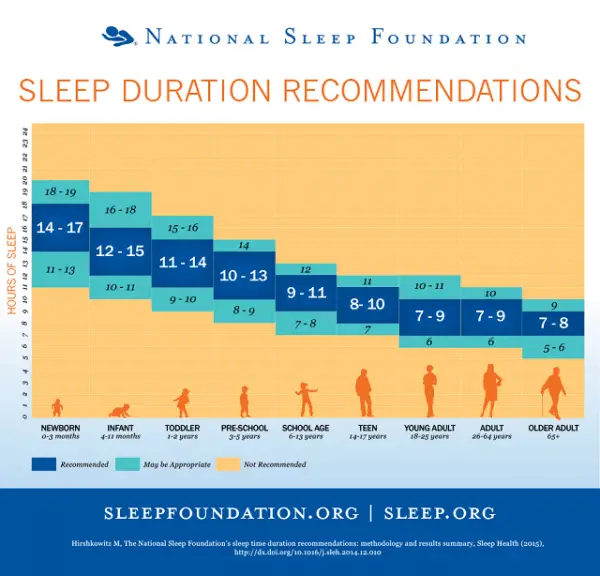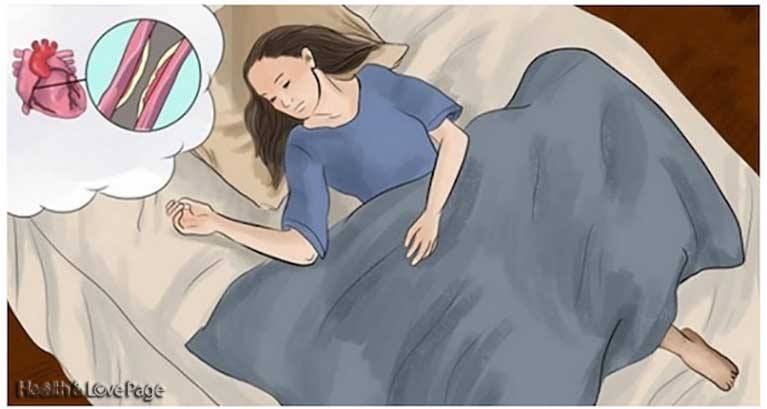We all know that sleep is vital to our overall well being, and we won’t be able to function if without it.
But, did you know that the amount of sleep our body requires is different for every age?
The popular belief is that adults are recommended to sleep for eight hours every night. But, this is not exactly true. Older adults need to sleep less than this amount of time, while kids younger than 18 years should sleep much longer.
The National Sleep Foundation has designed a chart that shows the amount of time needed for sleeping according to our age. A lot of scientists from different fields were included in the creation of this chart, such as from physiology, gerontology, pediatrics, gynecology, sleep and anatomy, and neurology. You can see the chart below in the post.


The popular belief is that adults are recommended to sleep for eight hours every night. But, this is not exactly true. Older adults need to sleep less than this amount of time, while kids younger than 18 years should sleep much longer.
The National Sleep Foundation has designed a chart that shows the amount of time needed for sleeping according to our age. A lot of scientists from different fields were included in the creation of this chart, such as from physiology, gerontology, pediatrics, gynecology, sleep and anatomy, and neurology. You can see the chart below in the post.

Problems with Sleeping
Constant Back Pain. One reason for your constant back pain might be excessive sleep since your back muscles get weakened. A good way to treat this problem is to exercise regularly to strengthen your back muscles. Therefore, the next time you have a day off, try some low-intensity exercises instead of staying in your bed. Weight Problems. Our metabolism slows down when we sleep for too long. So, instead of using our energy, we will probably store it, leading to gaining some extra weight. If we practice this habit for too long, we might even become obese. Depression and Anxiety. Depression or anxiety might be caused by oversleeping or insomnia. The general statistic shows that around 15 percent of depression or anxiety patients are likely oversleeping, which can adversely affect their mental health. Constant Headaches. Your constant headaches might be connected to your habit of oversleeping which might damage the neurotransmitters. Type 2 Diabetes. Our body might have problems processing glucose when we sleep too much, or too less. This can cause insulin resistance and eventually type 2 diabetes. Cardiovascular Condition. The human’s heart needs rest to function with full capacity, however too much or too little rest can impede its activities. Nurses’ Health Study has released a study conducted on 72,000 participants, showing that those who sleep more have higher chances of developing coronary heart disease, in comparison with those who sleep around 8 hours. Fatality. Combination of more conditions developed as a consequence of oversleeping, such as diabetes, obesity, and coronary heart disease can sometimes be fatal.Ways to Avoid Oversleeping
- Make a strict sleep schedule and make sure you follow it every day
- Don’t use any electronic device at least one hour before bedtime
- A good way to relax before going to bed is doing some yoga poses or mediation
- Take a cold shower before going to bed
- Do regular exercises throughout the day
- To keep your mind active and alert as well as your body well hydrated, drink a lot of water throughout the day
- While trying to achieve your goal, engage in an activity that will keep your brain active and alert

Leave a Comment
